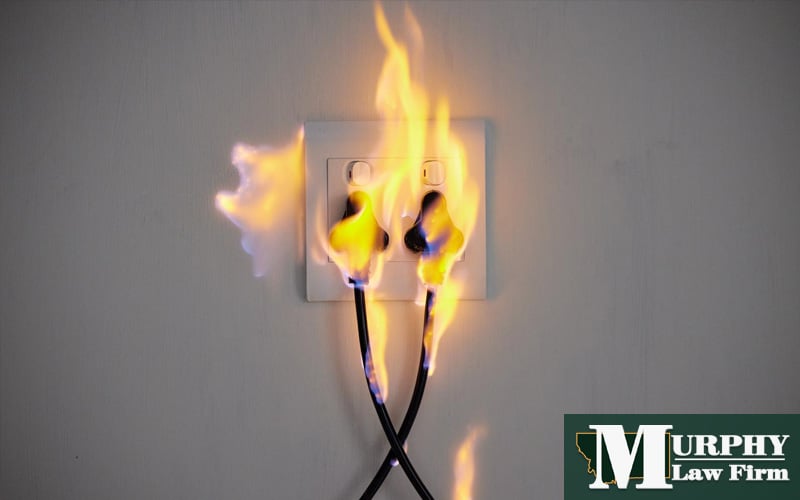Product liability refers to the responsibility a manufacturer or seller bears for injuries or damages suffered by a consumer as a result of producing or distributing a defective product. This liability extends to any and all sellers in the chain that distribute the defective product.
By law, a product is required to meet the reasonable and ordinary expectations of a consumer who purchases the product, including that it be free from danger or defects not expected to be associated with it.
Legal regulations known as product liability laws outline the responsible party’s culpability for dangerous or defective products. However, product liability law differs from other types of injury law, often allowing an individual who has been the victim of a dangerous or defective product to file a lawsuit and recover damages more easily.
While product liability law exists, there’s no law at the federal level covering product liability. Instead, theories of breach of warranty, negligence or strict liability are invoked, and claims are brought under state laws. Warranty rules covering product liability are also found in each state’s commercial statutes, which are based on the Uniform Commercial Code—a collection of laws that applies to all commercial transactions within the United States.
A famous product liability case
In February 1992, Stella Liebeck purchased a cup of coffee from the drive-thru of a McDonald’s restaurant in Albuquerque, New Mexico. As she removed the lid from the cup to add creamer and sugar, she spilled the coffee onto her lap. The coffee, later estimated to have been between 180°F and 190°F, left the 79-year-old woman with 3rd-degree burns on her thighs, groin and buttocks.
As a result of her injuries, Liebeck spent 8 days in the hospital. She required skin grafts and medical treatment for 2 years following the incident. During her hospitalization, Liebeck lost 20 pounds, which was almost 20 percent of her total body weight, leaving her weighing just 83 pounds.
Liebeck hired attorneys and attempted to settle the matter with McDonald’s for $20,000 to cover her lost income and medical expenses. When McDonald’s countered with an offer of just $800, she took the restaurant to court.
At trial, Liebeck’s attorneys argued that McDonald’s was liable for her injuries. They pointed out that the coffee served to their client was a scalding 180°F to 190°F, whereas other restaurants serve their coffee at a temperature of 140°F—still appropriate for the hot beverage yet far safer. The jury agreed, and Liebeck was awarded $160,000 for medical expenses and another $2.86 million in punitive damages.
Stella Liebeck’s lawsuit against the fast-food giant became known as the “Hot Coffee Case.” It’s been 1 of the most controversial and highly debated product liability cases in the history of the U.S. legal system. The judge in the case ultimately reduced the amount of the payout, and the parties involved agreed upon a confidential settlement amount.
What types of compensation are available for defective product claims in Montana?
In Montana, there are 2 types of damages you may be able to claim in a personal injury case—compensatory and punitive. We’ll discuss the details of both below.
Compensatory damages
Compensatory, or actual damages, are monies awarded based on actual injuries suffered and any losses incurred as a result of an accident. Compensatory damages are broken down into 2 sub-categories: Economic losses and non-economic losses.
- Economic losses. Economic losses are any tangible losses that involve monetary loss, such as lost wages, medical bills and expenses, legal fees, etc. Any estimation of damages must be reasonably accurate, particularly those related to projected future damages, such as future lost wages or medical expenses expected to be incurred at a later date.
- Non-economic losses. Non-economic losses are losses that are intangible, such as emotional distress and pain and suffering. These issues are more subjective in nature and are not based on monetary losses incurred by the plaintiff.
Punitive damages
Punitive damages are awarded in limited situations in order to punish the defendant for reckless or extremely negligent actions.
Under Montana law, when a defendant commits actual malice or fraud, the plaintiff may recover reasonable punitive damages. In cases where punitive damages are ordered, Montana law outlines a number of specific factors to be considered in determining the dollar amount of the damages. Some of these factors include:
- The nature and severity of the offense
- The intent of the defendant in committing the offense
- The defendant’s net worth
- The amount of any actual damages that have been awarded to the plaintiff
- Whether there exist prior or potential criminal sanctions levied against the defendant with regard to the offense
- Whether the defendant has been involved in previous instances of the same offense that resulted in punitive damages being ordered
Montana caps punitive damages at $10 million, or 3 percent of the net worth of the defendant, whichever is less. Some exceptions may apply.
How long do I have to seek damages in a product liability lawsuit?
In Montana, the statute of limitations for personal injury claims, including defective products, is typically 3 years. This applies to most types of injury; however, there are shorter time limits in some instances. For example, to sue someone for malicious prosecution and defamation, you must file a lawsuit within 2 years of the alleged offense.
A notable exception to deadlines is when the plaintiff is a minor at the time of the alleged offense. In this instance, the statute of limitations begins to run on the day the plaintiff turns 18 years old.
When to contact a Montana defective product lawyer
As in the “Hot Coffee Case” discussed above, corporations and insurance companies frequently try to offer injury victims far less than they deserve. In order to get the maximum compensation to which you’re entitled, you need an experienced product liability attorney in your corner.




